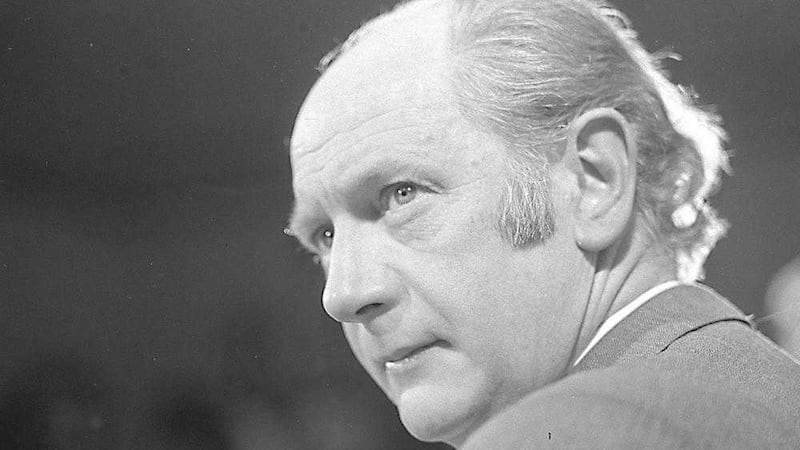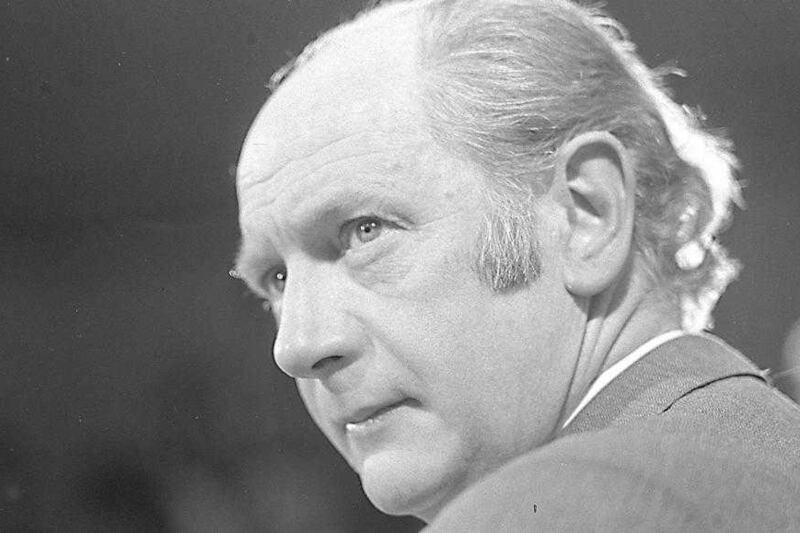Catastrophe and Resurgence: The Catholic Predicament in ‘Northern Ireland’ Volumes I and II, by Pat Walsh, published by Belfast Historical and Educational Society
IN THE mid-1970s, Michael Farrell, the People’s Democracy activist, wrote The Orange State, a well argued, if occasionally heavy-handed, history of Northern Ireland from a nationalist Marxist perspective. It still remains a useful case for the prosecution regarding the ‘factory of grievances’, as Patrick Buckland termed the north.
Contrary to the claim of Dr Walsh, there is a long tradition of books from the Northern Catholic perspective. Indeed, contemporary academic literature contains few pro-unionist books. (There are, admittedly, plenty of books critical of the Provisional IRA, which are not the same thing, which may explain the author’s confusion).
Moreover, he has decided to use only a tiny proportion of the vast body of literature on Northern Ireland in these extraordinarily long, wearying, badly written, poorly edited and frustrating books.
The central and very opaque argument, which is advanced but never properly sustained, is that Britain established "an arena for communal conflict in the Six counties that it hoped would provide leverage over the greater prize, regaining hegemony over the Twenty Six" (p.244 of Resurgence). Few historians would accept this. Does the author really think that Lloyd-George in 1920 was able to foresee that the ‘Troubles’ in the era of Ted Heath, would allow Britain to supposedly regain influence in the Republic?
The comprehensibility of these volumes is not aided by the method that the writer deploys. Long quotations from books and documents, which will put off all but the most enthusiastic reader, are often followed by what can only be described as sweeping and curious conclusions.
This is combined with frequent, unhelpful and misguided digressions, which greatly inhibit any coherence and flow. Regarding his conclusions: take his following assertion about Irish government policy around 1970: "The policy of Dublin was nonsensical. If Dublin believed the cause of trouble in the North to be Partition and that trouble was incapable of being eradicated without an end to Partition and it was ruling out the use of force to achieve it, how was it to end the trouble in the North?" (p.84 of Resurgence). It is possible to argue, depending on your perspective, that this was, on the one hand, wise or prudent, or on the other, wrong or cowardly. The policy was not, however, nonsensical.
The writer, almost to the point of absurdity, makes sweeping and simplistic judgments about protagonists operating in an often terrifying and complex situation. For example, Jack Lynch is portrayed as virtually a British puppet. In contrast, ludicrously, Charles Haughey is described as "the only true statesman of Nationalist Ireland" (p.338 of Resurgence).
Haughey clearly used public office to enrich himself and his cronies. In his defence of Haughey, Walsh gives credence to John Feehan’s laughable Operation Brogue book, which claimed that Charlie was the victim of British ‘dirty tricks’ in the early 1980s. The only problem with this is that when the real story of Haughey emerged in the late 1990s, the alleged stories planted by Britain barely scratched the surface of how corrupt and venal Haughey was.
It would be easy, if space allowed, to list the numerous misspellings, poorly drafted sentences, repetitions of quotations, bizarre capitalisations, narrow reading, odd interpretations of events, and non-standard names given to organisations and treaties, which mar these volumes.
Dr Walsh has contempt for most other Irish historians. Indeed, he implies that Britain has re-educated them since the 1970s (p.90). He will, therefore, be reassured to know that my historical training is from the Republic of Ireland and uncontaminated by these nefarious foreign influences.
Robert McNamara
:: Robert McNamara teaches history at Ulster University.
Falling by Jane Green, published in hardback by Macmillan
MOVING to the suburbs and falling in love with a hunky man is a fantasy for many, but author Jane Green is proof of a success story. It's been 20 years since she left journalism – and London – for America to work on her debut novel Bookends, and she has never looked back. Like many of her earlier works, Green's 18th book has been inspired by her own life. The protagonist Emma Montague swaps her upper-crust English life and dull boyfriend Rufus for a financial career in New York, before switching to a beach cottage in Westport, Connecticut, like the author herself. Emma immediately falls in love with her landlord (just as Jane did). The couple have to learn to deal with the curveballs life throws at them to make their relationship work. The perfect summer escapist read.
Shereen Low
The Secrets Of Wishtide by Kate Saunders, published in hardback by Bloomsbury
MEET Laetitia Rodd, a widow in "reduced circumstances" who also happens to be an ace undercover private detective. The first novel in a new series by award-winning author and journalist Kate Saunders, this is a breath of fresh air. Set in the Victorian era, there are charming nods to history such as when Mrs Rodd makes rabbit pie or dons black silk for mourning. This case involves travelling to Wishtide in Lincolnshire, disguised as a governess, to investigate the background of a so-called "unsuitable" woman set to marry a rich man's heir. A deceptively gentle read, it's packed with pithy observations about human nature and Mrs Rodd makes a genuinely likeable character you can't help but root for. Luckily, there are already plans for five more books in the Laetitia Rodd Mystery series. Can't wait.
Gill Oliver



